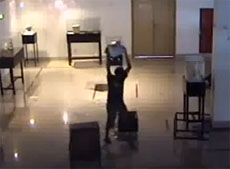The Maldives Journalist Association (MJA) has called on the government to amend controversial new regulations enacted this week that subjects prose and poetry published in the Maldives to government approval.
The MJA contended in a press release yesterday that the regulations were unconstitutional, noting that Article 27 guarantees “the right to freedom of thought and the freedom to communicate opinions and expression in a manner that is not contrary to any tenet of Islam.”
“The Article does not state that free expression could be restricted by law. Only expressions or opinions contrary to a tenet of Islam are restricted,” the MJA observed.
While the MJA urged a proper review of regulations before enforcement or publication in the government gazette, opposition MPs, civil society, and the information commissioner have also criticised the new rules.
The regulations prohibit publishing literary material without seeking authorisation from the national bureau of classification (NBC) – which functions under the youth ministry – and prescribes a fine of between MVR500 (US$32) and MVR5,000 (US$324) for violations.
The regulations define publication of literary material as “as any writing, photograph or drawing that has been made publicly accessible electronically or by way of printing, including publicising or circulating on the internet.”
Publicising poetry was defined as “publishing poetry in writing in any manner, recording it, selling it as a studio album, including it in a film or documentary, broadcasting or telecasting, publicising it on the internet, and or publicising it as a ringtone.”
Following an outcry on social media yesterday, the youth and sports ministry issued a press statement claiming that the rules would not apply to either social media or registered newspapers and online news outlets.
“We note that approving books, poetry and songs published in the Maldives is not a new rule but has been done by this bureau for many years as well as at present,” the statement read.
Information commissioner concerned
Information Commissioner Abdul Azeez Jamal Abubakur told Minivan News today that he met members of the bureau and senior officials at the youth ministry yesterday and expressed his concerns.
“They accepted [the concerns] and said they would release a press statement and would try to amend the regulations through [the People’s] Majlis,” he said.
Azeez suggested that the regulations had “slipped through their fingers” and ended up in a very restrictive or “difficult” form.
“If the regulations are enforced the way it is now, we can’t publish poetry on websites without using a small tactic,” he said.
Azeez referred to the regulations exempting publications from a political party, civil society group, company or state institution to disseminate information among members or staff.
“So we’re writing on our website that this poem is intended for members of this association. So we are able to publish now, but that is a very difficult way,” he said, referring to ‘Liyuntheringe Gulhun’ (Writers Association) website.
Azeez told local media yesterday that the regulations were “unlawful” and would “put a lock” on Maldivian literature, noting that half of literary output in the country was poetry.
“Having to seek approval for a poem in this day and age is a big joke. Paying 50 rufiyaa to approve a poem is also a joke,” he was quoted as saying by newspaper Haveeru.
The former Progressive Party of Maldives MP called the regulations “unacceptable” and questioned whether it could be enforced.
Censorship
In a message sent to the media yesterday, former Speaker of Parliament Abdulla Shahid contended that the regulations violate the constitutional rights of freedom of expression, freedom of the press, and the freedom to acquire and impart knowledge, information and learning.
Condemning the government’s “decision to impose pre-publication censorship,” the opposition Maldivian Democratic Party (MDP) MP said the move was characteristic of a dictatorship.
MDP MP and Spokesperson Imthiyaz Fahmy meanwhile told Minivan News that the government was “going back towards censorship as it had existed prior to the amended constitution of 2008.”
“Back then even a musician would be required to get approval of the government when they would want to release a musical record. That way the government would suppress freedom of speech and artistic works as well,” he said.
Imthiyaz said he was once summoned by a government official who demanded an explanation of the “implicit meaning” of a song he had written.
“Because as far as he was concerned it had an unacceptable and hidden meaning in it. And he further said he wanted my testimony in writing because he would be sending the case for criminal prosecution. Free speech and reporting and literature will be a bitter pill to swallow for this authoritarian government,” he said.
NGO Revive has also expressed concern with the negative impact on Maldivian literature as a result of the regulations.
The arts and culture NGO called on the Dhivehi language academy to review the regulations and “ensure that efforts to promote Dhivehi language could be carried out.”
 (0)Dislikes
(0)Dislikes (0)
(0) “I’m very surprised the government [is holding this event] but are not able to arrest those who
“I’m very surprised the government [is holding this event] but are not able to arrest those who